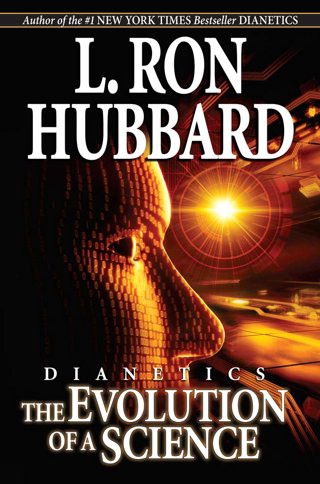The Dianetics Statements
Wiki Article
The Basic Principles Of Dianetics
Table of ContentsThe Of DianeticsRumored Buzz on DianeticsHow Dianetics can Save You Time, Stress, and Money.What Does Dianetics Mean?
I couldn't ever before not want to receive anything that enters your mind for you- if it was otherwise, I wouldn't be resting here with you, doing this. I not just can never have a problem, or not intend to listen to something that comes to mind for you, yet I'm totally eager to know every concept, every thought, every photo or feeling that arises or materializes for you- do not ever assume otherwise, and if for some reason you do, please simply let me recognize! Often, you may have an idea, and image, concept or incident turn up that does not appear to answer the concern, or associate with it, but nonetheless, constantly do tell me regarding it, and as we continue, the significance will certainly emerge for you.This is integral in the basis of handling, and the subject of this conversation: the basic functions of the therapist and the customer: The basic function of the therapist is, in contrast to "typical training", not to manage, which suggests to enforce and/or prevent, however to rather function from the basis of EMPOWERING THE CLIENT.

Facts About Dianetics Uncovered
John Mcmasters expressed this standard fact incredibly well in one of his talks on Power handling, wherein he describes just how he was asked what this "special propensity" was that he had for providing such fantastic sessions; he had to think of that for a moment, and identified that it was what he had not been doing, as well as what he was doing: he wasn't evaluating, evaluating, computer, or actually, creating any kind of ideas, let alone verbal expressions, after giving the command and while waiting on the PC to complete their response to their satisfaction; he was, simply and only, existing with the PC, and completely interested.The function of the therapist, showed; that was his "unique propensity". I have actually had my very own experience which taught me this well, really early in the game. In 1982, having recently finished my training and teaching fellowship on New Period Dianetics, I was running this on a PC, and there was our website a point in the session where (being a little bit wet behind the ears not yet having several hours under my belt as a specialist auditor) the computer seemed to be "taking too lengthy" to reveal anything vocally after I offered him a command.
This trick ended up being the most beneficial payment that John ever made to the topic of therapy or bookkeeping (Dianetics). In my simple viewpoint, it is the best payment that any individual has ever before made to these subjectsthe application is totally non-judgemental, non-evaluative, and without any kind of idea, guidance or opinion.no preconditioned schedule for people, or 'degrees' that they need to do
In Idenics, the go to the website only source of info about a customer is the private client. In Scientology we prided ourselves on not reviewing for people. All that truly implied was that the auditor did not VERBALLY examine for the Computer in session. The registrars and ethics police officers reviewed for the PC.
The Buzz on Dianetics

Any individual who had actually ever seen John audit could not assist but see a distinct top quality in his bookkeeping."The client's fundamental role is to be there with the function of relocating the instructions of their spiritual goals, and to easily and totally share and experience whatever manifests for them in responding to the learn the facts here now inquiries and executing the directions in the handling.
This is something to procedure as required. Also, individuals frequently have prior experience and/or indoctrination in auditing/processing which, in some methods, and to some degrees, actually misguides them right into perspectives, concepts and actions patterns that stop the complete understanding of these duties, and so they will certainly often tend to hinder the expressing of what comes to mind, as in the instances provided over - Dianetics. * The very first, and possibly leading examples of mis-indoctrination leading to less than completely smooth and reliable sessions, can be located in specific elements of the training regimens, or "TR's":"TR's" are commonly a person's first, or at the very least early, experience in Scientology, and while I will go on to discuss what I see as the flaws in principle and technique, however, have a tendency to be considerably therapeutic, done as they are given (Hubbard firmly insists that "TR's are not refining, they are educating", but factually, they are both handling AND training)
Alan Walter made comparable observations, and improved on these with his "Presence Processes". There is no "failing", and no denial of the reality of this being processing. The focus, as it should be, gets on experiencing the other individual's presence. All the indications which obtain a "flunk" in doing "TR-0" are merely the being's efforts to stand up to the other person's existence, and instead than being bugged and pestered with "Flunk", which enforces "failure!" on the being, one merely needs to be urged to "stick their feet in the water a little much deeper", to significantly rehabilitate their capacity and determination to totally share and experience "being below", or "existence", with others.
Dianetics for Dummies

Report this wiki page